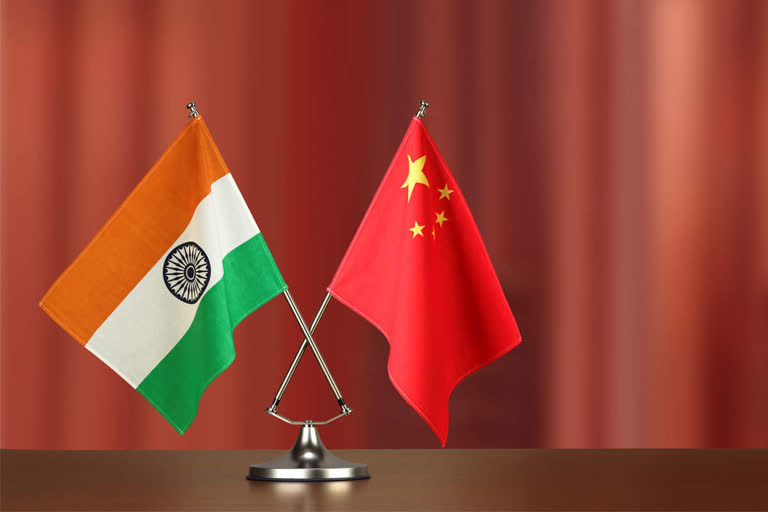Beijing: India has told China that the significance of the consensus reached between their leaders to maintain peace along the Line of Actual Control (LAC) cannot be "swept under the carpet" and called for the complete disengagement of troops in eastern Ladakh to rebuild bilateral ties strained by the "serious incidents" which has strongly impacted the public opinion.
In his lengthy speech, Indian Ambassador to China Vikram Misri said no country can set the agenda for itself without agreements from other countries, in an apparent reference to China's Belt and Road Initiative (BRI) and its flagship project the China-Pakistan Economic Corridor over which India has raised concerns as it is being laid through the Pakistan-occupied Kashmir.
The BRI is a multi-billion-dollar initiative launched by President Xi Jinping when he came into power in 2013. It aims to link Southeast Asia, Central Asia, the Gulf region, Africa and Europe with a network of land and sea routes.
Read:| Legacy issues need to be resolved through dialogue & not by unilateral actions: MM Naravane
China also claims sovereignty over all of the South China Sea. Vietnam, Malaysia, the Philippines, Brunei and Taiwan have counterclaims.
"In a multi-polar world, no country can set the agenda by itself without prior agreement and consultation, and then expect everyone else to come on board. No single country can expect a discussion to focus only on issues of its interest while ignoring those raised or reflected by others, Misri said.
About the consensus between the leaders of the two countries for good relations, he said, "it has often been pointed out by friends in China that we should stick to the consensus between our leaders. I do not quarrel with that".
"Indeed, I agree wholeheartedly. At the same time, I should point out that equally significant consensus has been reached between our leaders in the past as well, for instance, the consensus that I just referred to on the importance of maintaining peace and tranquillity, and it is important to stick to that consensus as well," he said.
"We have also seen a tendency in some quarters to sweep this situation under the carpet and characterize it as just a minor issue and a matter of perspective. This too is inadvisable as it can only take us further away from a sustained solution to present difficulties and deeper into an unfulfilling stalemate, he said.
Read:| India will not get pushed under any pressure: CDS Gen Rawat on Ladakh standoff with China
"It would be tantamount to running away from the problem and in a direction opposite to that where the promise of our closer development partnership lies, he said.
While the leaders "recognised the inevitable presence of competition in the relationship, they also simultaneously prioritised cooperation and shunned containment, because they believed that containment was neither feasible nor advisable in respect of either country", he said.
Though the border mechanisms were tested on multiple occasions, they "helped maintain the all-important peace and tranquillity on the borders, thereby helping create the environment in which the India-China relationship grew spectacularly between 1988 and 2019, he said.
"But we must acknowledge that these enabling structures and the fundamental premise of the closer developmental partnership have been placed under considerable strain by the serious incidents and the resultant violation of peace and tranquillity at the LAC in Eastern Ladakh in April 2020 and thereafter. The impact on public opinion has been particularly strong," Misri said.
Indian and Chinese troops are locked in a prolonged standoff in eastern Ladakh since May last year. Soldiers from both sides completed the withdrawal of troops from the North and South banks of Pangong lake in February. But the disengagement has not taken place yet from various other areas in eastern Ladakh.
Read:| India closely watching Chinese air defence batteries deployed near LAC
Top Commanders of the two militaries held the 11th round of talks on April 9 to disengage the troops from Hot Springs, Gogra and Depsang areas in Eastern Ladakh.
Misri said the "sustainable solution" to the "present difficulties" in India-China relations is "it must be one, as External Affairs Minister Dr S Jaishankar has suggested, that is based on mutual sensitivity and respect and paves the way for maximizing our mutual interests".
"The first is to note the importance of the two sides have maintained a sustained diplomatic and military dialogue in attempting to resolve issues. These discussions thus far have helped in achieving substantial disengagement of our forces, he said.
"The second is to point out that senior leaders on both sides have committed and agreed that we must achieve complete disengagement in all friction areas. That would be an important first step towards considering de-escalation; it would also help in restoring peace and tranquillity and, together, these would provide conditions for gradual and step-by-step progress in the bilateral relationship, he said.
"This is also what would begin to restore trust and confidence in the relationship and help us rebuild the foundation of the relationship that was damaged through last year's actions in Eastern Ladakh," he said.
He said it was also important to recognize that in a post-pandemic world of altered equations, multipolarity is probably more important than ever, both in the Indo-Pacific and beyond.
PTI



